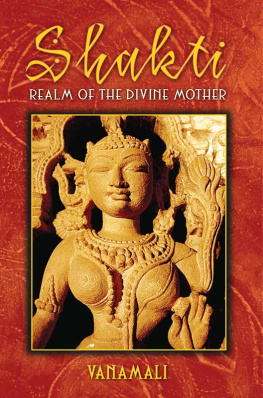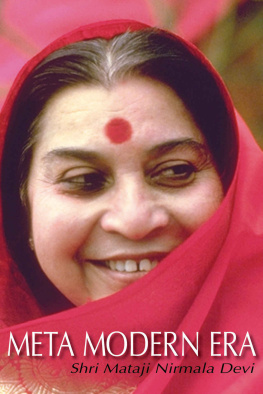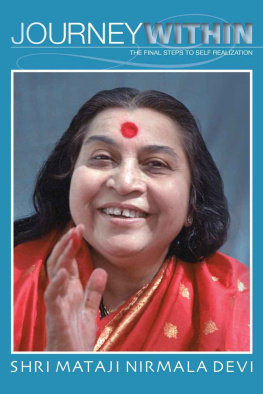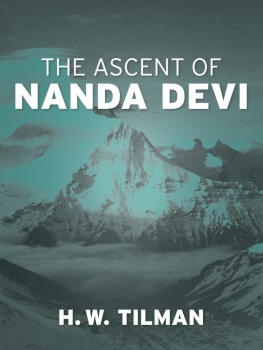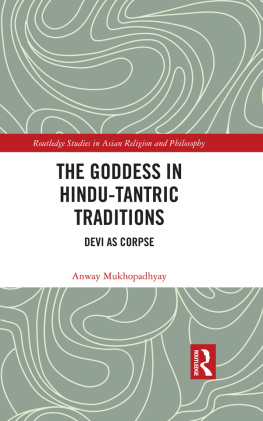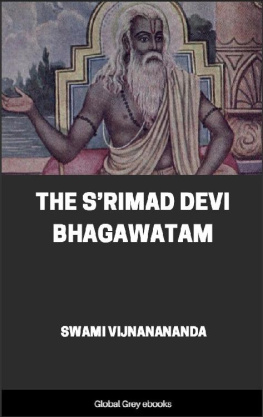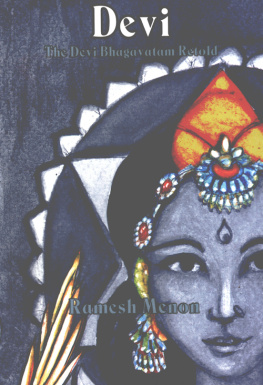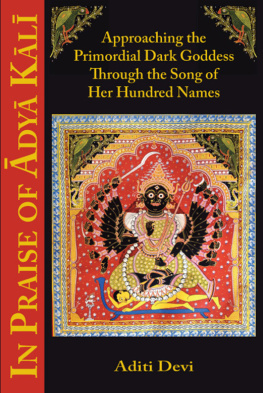Y
D E V M H T M Y A M
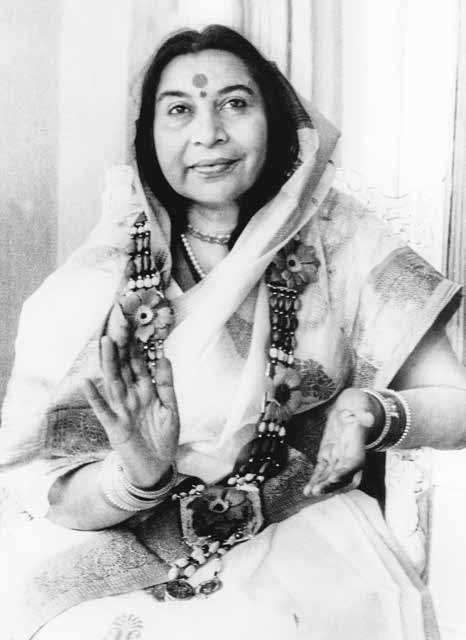
B E H O L D T H E M O T H E R
The Counsellor, the Comforter, the Redeemer
DEV MHTMYAM
the Glory of the Goddess from
The Mrkandeya Purna
twelfth century CE
translated by Lyndal Vercoe
Y

DEV MHTMYAM THE GLORY OF THE GODDESS
from The Mrkandeya Purna, twelfth century CE
Y
translation Lyndal Vercoe 2010
second edition 2019
All rights reserved. No part of this book may be used or reproduced in any manner, printed or electronic, without permission from the publisher.
DIVINE COOL BREEZE BOOK 02 (DCB002-DM)
ISBN: 978-0-359-98061-1
DIVINE COOL BREEZE BOOKS
www.divinecoolbreeze.com
Y
Introduction
As you read this Dev Mhtmyam, you will feel the joy, the power and the wonder of the Divine Mother.
At its simplest level, the Dev Mhtmyam is the battle between good and evil. But on that battlefield, the majesty of the Mother Goddess should not be underestimated. She does not wage wars with the aid of grand armies or divine allies. She alone is the source and the strength.
In a new translation of this sacred text, Lyndal Vercoe offers a direct and devotional rendering. This is not just a description of Divine Power. It is a worship and a praise of God as the Mother of the Universe.
Say those words to yourself and feel their meaning: the Mother of the Universe.
Words are set out to describe that which is indescribable. Poetry transcends the limits of language.
Such descriptions of an all-powerful feminine God are virtually non-existent in the Christian West. And they are, surprisingly, almost as rare in the East. In world literature, the Dev Mhtmyam is an elusive scripture.
Nestled protectively within the much larger Mrkandeya Purna, it is an unique and extraordinary expression of both reverence and devotion.
This is not just a historical text. This is a prayer to be read aloud. It is an epic poem, a true song of praise that should echo through the days of our lives.
Listen carefully and you will feel the spirit within.
This is a Dev Mhtmyam for our time.
Foreword
This book exists because of Her Holiness Shri Mataji Nirmala Devi, the one who came to give this Earth its meaning.
At first I wrote for my own satisfaction and then I was enthusiastically encouraged by so many members of the Sahaja Yoga collective: creativity needs community support.
Graham Brown gave practical advice and created a printed book which was given to Shri Mataji in the USA in 2005.
Then Graham created a blog which drew the attention of Dragos Ionel and Richard Payment, who gave it a wider readership on the Web.
Richards editorial input and design has given it polish and visual beauty so that it can become a real book with paper pages at last to be held and read without eyestrain.
Tim Bruce, in 2019, offered more creative input as he prepared to make an audio recording. He has wisely added the appropriate mantras which traditionally accompany the reading of the story. Mrkandeya always meant the poem to enlighten the listeners who were not even readers nor scholars. Tims reading astounded and delighted me: it has added a whole new dimension to the written text, and makes it a blessing to be enjoyed by wide audiences.
Lyndal Vercoe
Contents
Dev Mhtmyam....................... 1
Durg Nmavali....................... 67
Shr Siddha-Kunjik-stotram............. 71
Dev Sktam........................... 77
The Kavach of the Dev................. 81
Y
Y W hen this story is told then both those who sing it and those who listen with devotion to them no trouble shall come nor any calamities from wrong-doing, nor poverty, nor separation from loved ones. They shall not experience fear from enemies, from robbers or rulers, from fire or flood or any weapon.Therefore this poem of my majesty must be recited and listened to with full attention and sincere devotion, for it is the supreme source of blessings.15

ONE
You create all that exists
ThaT noble king, SuraTha, had ruled over his prosperous land like a benevolent father until a conspiracy of jealous kings had attacked his kingdom and reduced it to a single city. Even there he had been undermined by treacherous ministers. He had escaped assassination, pretending he was going hunting; he had ridden away into the forest wilderness, until he found refuge in this peaceful ashram of the Rishi Medhas.
King Suratha was so full of grief. He could not rest. One day as he wandered, unseeing among the gardens and trees he discovered another man sitting by the path. This richly dressed man looked despondent.
The king asked the stranger tenderly: Who are you sir? I feel that you have a heavy heart. What brings you here to this quiet place?
The merchant stood up. He bowed and thanked the king for his kind attention as he introduced himself. His name was Samdhi. They sat together and told each other of their losses. The merchant had been cruelly thrown out of his own home by a disloyal wife and greedy sons.
But, O King, I cannot stop worrying about their welfare. I love them all, and fear for their souls, that they should have acted so wickedly.
The Kings voice was gentle and soothing:
It seems strange, dont you feel, that you grieve and worry for these people when they have been so unfeeling towards you?
The merchant responded. O King, even as you were speaking the same thought occurred to me. I wonder what binds us so deeply to our fates when we are helpless to alter these situations.
Since our fates have brought us here, the King said, let us seek the advice of the great Rishi Medhas on the matter.
They rose together and with purposeful steps they approached the Rishis dwelling place.
The king and the merchant each bowed respectfully to touch the feet of the ancient sage, Medhas. He gestured invitingly. When they were seated, his kind eyes looked enquiringly and the king spoke for both of them saying:
Beloved Teacher, I just want to know one thing: this problem obsesses my mind, but my intellect cannot resolve it; I am still obsessed about my kingdom and all the business of rulership. I know this is foolish, yet I cannot help behaving like an ignorant person. Why is this, O best of Munis?
And here, too, is this man thrown out by his household as worthless, and yet he still feels such affection towards them.
So we are both very unhappy; our minds always drawn by self-centered thoughts to these matters, even though we see it is foolishness. How can we be so deluded and yet still aware of that? How can we both be so lacking in discrimination that we indulge in this state of despair?
The Rishi said:
The understanding of all creatures is relative to their field of percep-tion. Some are blind by day and some by night. All are limited. Mankind is certainly not any more aware than the deer, the birds or others.
All creatures are compassionate beings.
O King, as you sit mourning, cant you see the birds busy feeding their young although they themselves are hungry? Just like you, they are bound to their offspring, expecting loyalty in return.
This delusion is the power of Mahmy which binds all creatures throughout their lives. This illusion makes them believe their existence is permanent. This power is the Great Goddess, the Dev who actually sustains all beings, both those that move and those which do not. She even causes the contemplative sleep of Lord Vishnu at the end of the Golden Age.
Next page

